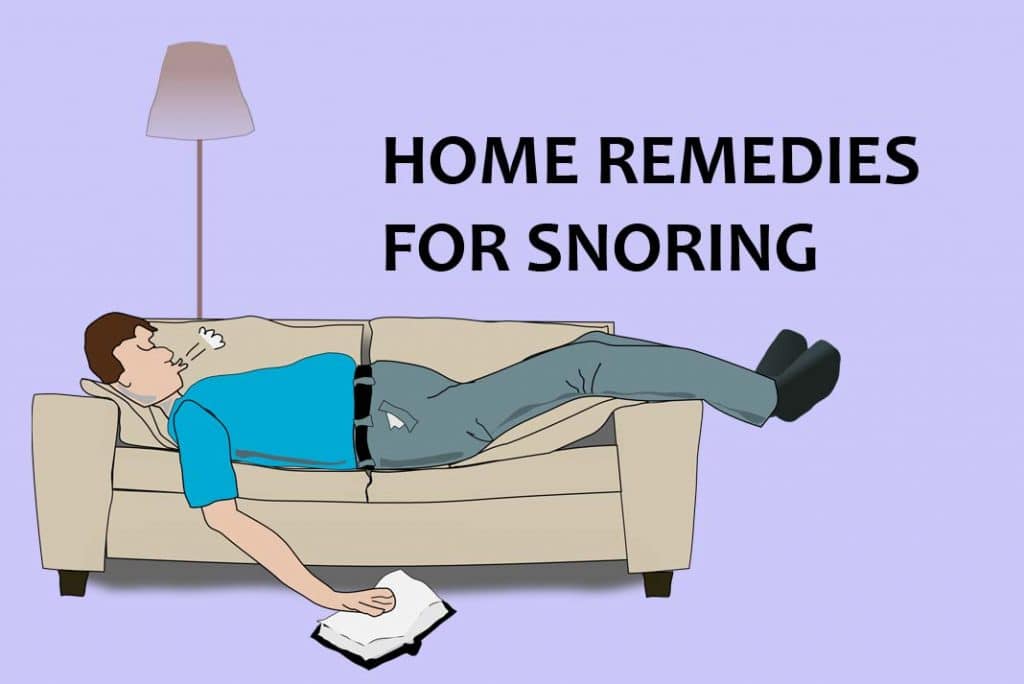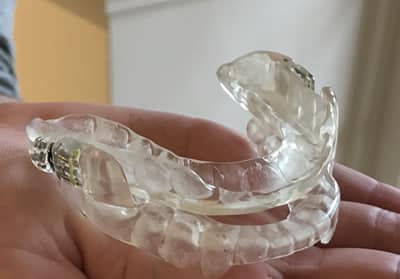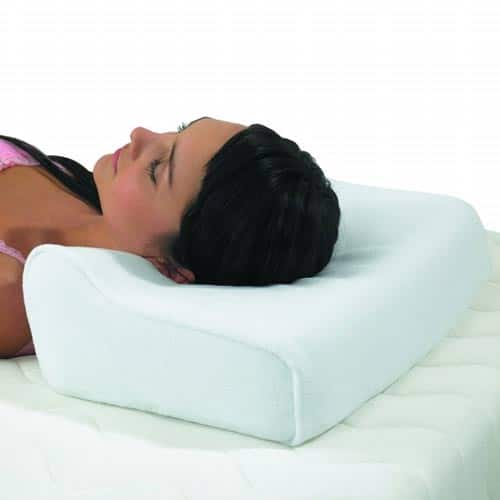Snoring is a hoarse or harsh sound from the nose or mouth that occurs when breathing is partially obstructed while sleeping. Sometimes, the sound may be soft but in most cases, it can be loud and unpleasant causing sleep deprivation to the snorer and those around him. Snoring can be a sign of a serious underlying medical condition such as obstructive sleep apnea, obesity and sleep deprivation and it may also be caused by sleep position or taking alcohol close to bedtime. Home remedies for snoring are best for snoring caused by benign factors.

Diagnosis of Snoring
To diagnose snoring, your doctor will assess your signs, symptoms, medical history and perform a physical examination. There are various medical devices to ascertain and confirm the condition.
Imaging – Your doctor may request an imaging test, such as an X-ray, a computerized tomography scan (CT Scan) or magnetic resonance imaging (MRI). These tests check the structure of your airway for problems, such as a deviated septum.
Sleep study – Another diagnostic test for snoring is a sleep study. The asleep study is a non-invasive, overnight exam that allows doctors to monitor you while you sleep to see what’s happening in your brain and body. For this test, you will go to a sleep lab that is set up for overnight stays—usually in a hospital or sleep center. While you sleep, an EEG monitors your sleep stages and the cycles of REM and nonREM or NREM sleep you go through during the night, to identify possible disruptions in the pattern of your sleep.
Related: How to Cure Breast Lump Without Surgery
Causes of Snoring
Snoring is the result of the relaxation of the uvula and soft palate. The snoring home remedies will depend on the underlying cause of the condition. Once the cause has been resolved, snoring will be effectively treated.
Snoring may be caused by a range of conditions including:
Obesity – Obesity is a condition of being overweight. Neck fat compresses the upper airway, particularly when lying down, making snoring much more likely. Being overweight and snoring isn’t just about neck fat. Central obesity, where fat is found around the midriff and chest, also worsens snoring and sleep apnea.
Obstructive sleep apnea – Snoring is a symptom of obstructive sleep apnea, a potentially serious sleep disorder. It is characterized by repetitive episodes of shallow or paused breathing during sleep, despite the effort to breathe, and is usually associated with a reduction in blood oxygen saturation. A diagnostic test such as a sleep study will determine if your snoring is due to obstructive sleep apnea or not.
Age – Another factor that can result in snoring is age. As we grow older the throat becomes narrower, and the muscle tone in the throat decreases. While we can’t do anything about growing older, lifestyle changes, new bedtime routines, and throat exercises can all help to remedy snoring.
Anatomy – Anatomical abnormalities of the nose and throat, such as enlarged tonsils or adenoids, nasal polyps, or deviated nasal septum cause exaggerated narrowing of the throat during sleep and thus lead to snoring.
Sleep Position – Sleeping on one’s back, which may result in the tongue dropping to the back of the mouth.
Alcohol – Alcohol is a muscle relaxant and taking alcohol close to bedtime can cause relaxation of the uvula and soft palate thereby causing blockage of the airway.
Smoking – Smoking irritates the membranes in the nose and throat which can block the airways and cause snoring.

Home Remedies for snoring
Home Remedies For Snoring
Several home remedies and lifestyle changes may help with snoring.
1. Lose weight
This will help reduce the amount of tissue in the throat that might be causing your snoring. You can lose weight by reducing your overall caloric intake by eating smaller portions and more healthy foods.
Obesity can cause snoring, hence treating obesity and losing weight is one of the home remedies for snoring.
2. Stop smoking
Smoking weakens and clogs the throat; hence quitting smoking can help to remedy snoring.
3. Avoid alcohol
Avoid alcohol and sedative medications before bedtime as they relax the throat and tongue muscles, which in turn narrow the airways causing snoring.
4. Sleep position
Changing sleep positions can help to stop snoring immediately. As stated earlier sleeping on the back sometimes causes the tongue to move to the back of the throat, which partly blocks airflow through your throat. Sleeping on the side may be all that is needed to do to allow air to flow easily and reduce or stop snoring immediately.
5. Treat Allergies
Allergies can reduce airflow through the nose. When the nasal passages close up, the respiratory system is forced to breathe more through the mouth. Treating allergies with antihistamines before bedtime can help free the nasal passages back up and stop snoring immediately.
6. Exercise
The importance of exercise cannot be over-emphasized. Exercise helps us to lose weight, keep fit and sleep better. Among the natural remedies for snoring are exercises to increase the muscle tone of the upper airway, and one medical practitioner noted anecdotally that professional singers seldom snore.
7. Use nasal strips or an external nasal dilator
Stick-on nasal strips can be placed on the bridge of the nose to help increase the space in the nasal passage. This can make your breathing more effective and reduce or eliminate your snoring.
You could also try a nasal dilator, which is a stiffened adhesive strip that’s applied on top of the nose across the nostrils. This can decrease airflow resistance, making it easier to breathe. Try nasal strips to help remedy snoring.
8. Dental Appliances

Specially made dental appliances called mandibular advancement splints, which advance the lower jaw slightly and thereby pull the tongue forward, are a common mode of treatment for snoring. Such appliances have been proven to be effective in reducing snoring and sleep apnea in cases where the apnea is mild to moderate.
9. Orthopedic pillows

Orthopedic Pillow remedy for snoring
Orthopedic pillows are the least intrusive option for reducing snoring. These pillows are designed to support the head and neck in a way that ensures the jaw stays open and slightly forward. This helps keep the airways as unrestricted as possible and in turn, leads to a small reduction in snoring.
10. Get enough sleep
Good sleep habits can also serve as a remedy for snoring. Make sure you get the recommended seven to eight hours of sleep you need each night.
Coping With Snoring
Snoring can disrupt your sleep and that of your partner. But besides being annoying, it may indicate a serious health condition. Seeing your doctor and trying one or more of the above treatment options can help you get your sleep under control.
More: Blepharospasm


